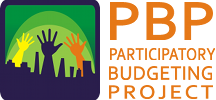The Interactivity Foundation (IF) has recently published a discussion guidebook entitled “Human Migration: Policy Possibilities for Public Discussion.” The guidebook was edited by IF Fellow Ieva Notturno, who also managed the long-term project and two discussion panels that explored and developed the ideas that resulted in the six policy possibilities listed below and further outlined in the guidebook.
The discussion panelists initially worked thru a series of fundamental questions and concerns about human migration, including “What could human migration mean? What are the forces that drive it? What societal goals and public policies might pertain to it? What are its different dimensions and how might these different dimensions conflict with each other? How might human migration and the conflicts that arise from it affect the ability of democracy to achieve its goals? Might immigration and emigration, as special examples of human migration, pose special threats to democracy? And if so, what are they? What concerns might Americans have about human migration? How might our public policies address these concerns? What conceptual policy possibilities might we develop that might affect the future of human migration?”
 In response to these and other questions and concerns, they developed the following six policy possibilities for further exploration and discussion:
In response to these and other questions and concerns, they developed the following six policy possibilities for further exploration and discussion:
- Put Security First
- Privilege Human Rights & Humanitarian Needs
- Promote Assimilation into Local Communities
- Put the Economy First
- Keep Families Together
- Embrace Freedom of Movement
For each of these possibilities, the discussion guidebook also describes possible implementations, effects (or consequences), and further discussion questions.
The Interactivity Foundation is a non-profit, non-partisan organization that works to enhance the process and expand the scope of our public discussions through facilitated small-group discussion of multiple and contrasting possibilities. The Foundation does not engage in political advocacy for itself, any other organization or group, or on behalf of any of the policy possibilities described in its discussion reports. For more information see the Foundation’s website at www.interactivityfoundation.org.
Resource Link: www.interactivityfoundation.org/discussions/human-migration/
This resource was submitted by Peter Shively of the Interactivity Foundation via the Add-a-Resource form.

 Test discussions facilitated by former Wisconsinites in Tucson, Ariz., and in Sonora and Mazatlan, Mexico, further developed the text of the discussion guide.
Test discussions facilitated by former Wisconsinites in Tucson, Ariz., and in Sonora and Mazatlan, Mexico, further developed the text of the discussion guide.





 After a year of development, I will be co-facilitating a workshop and introducing several new practical modules at the annual national meeting of the Council of State Governments in Kansas City this month. This hands-on workshop was developed specifically for legislators around the country. Learn more at the CSG website at
After a year of development, I will be co-facilitating a workshop and introducing several new practical modules at the annual national meeting of the Council of State Governments in Kansas City this month. This hands-on workshop was developed specifically for legislators around the country. Learn more at the CSG website at 